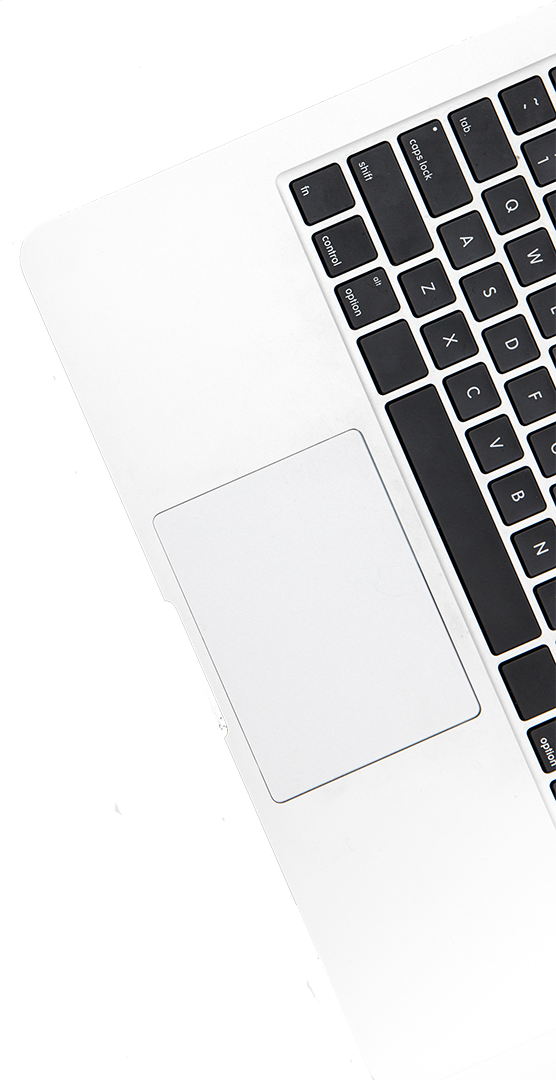State of "Innovation" [PART 3]
Which shouldn't be surprising by this point, it seems that despite what the (expert) marketing team at Apple would have you
believe, none of their products are revolutionary new concepts that change the way we interact with our devices (hardly any new
product is, regardless of the manufacturer).
What also becomes apparent is they'll eagerly take credit for what is essentially an Apple spin on an existing product. Pro tip:
of course, each new iPhoneMacPod is the "best ever", because they're built upon an expanded version of the same spec from last
year's model – they're not going to introduce the newest laptop in the line-up and design it for Windows 98 now are they?
The high and mighty act that the shady and evil corporation stole windows (Microsoft, who may or may not be shady and evil for
their own reasons) no longer applies when the inverse is true of every product in the Apple line-up and at least
Microsoft haven't made a product that encourages straight up theft.
Oh, you didn't know? Old Steve marketed a product that enabled free long-distance calling, actively profiting from piracy and
theft. The usual defence in this case is that "ma bell" can afford to take a hit and he was just a rebellious college kid long
before he ever started Apple. There's plenty of college kids these days that are being sued or sent to jail for just as
rebellious acts of "social liberation" from the corporations (GeoHotz anyone?). As for the righteous take down of "big business"?
Yeah, well, that money went into Apple in some form and now they have enough money to buy New Zealand, it's not like they'd
scramble to shrug off the theft of a phone from one of their stores (even though we all know "they can afford to take the
hit").
Don't get me wrong, Microsoft definitely has a shady side in an anti-trusty type of way – but somehow that gets publicized,
whereas Apple can come out squeaky clean because they're the devices the reporters use and trust (and I doubt anyone would
actively admit their own stupidity if they didn't trust the company who supplies their precious glass porn portal).
From an innovation standpoint though – Microsoft has always thrown everything it has into developing weird and wonderful new
concepts, remember Ultra-mobiles? (no not the Spectre or Mac Book Air you can get now), the full x86 PC crammed into a case not
much bigger than a phone today. I would almost be willing to bet decent money on the idea that, if someone other than Microsoft
did that now, it would take off and become a success (something like the GPD Win or Pocket - except made for mass-market).
First to make things easy to use
The next argument for the supposed "innovation" of a company is that they've taken
something difficult to manage and made it easy for the average user. While so far these seems to have come out as a dump on
Apple, the argument is used for Google and other large corporations.
Following the theme thus far: this is nothing more than iteration.
Even then, who's to say the way a certain company does things is easy anyway?
It's subjective at best, I personally never had any issues grasping the original Windows Mobile, but apparently Apple's way "is
easier to use". Even the perceived 'complicated' Android does things much better than iOS, and that's due to the slow pace of
improvements to the software side of things on the Apple front (they're very much a hardware company). It's a good thing they
don't charge for Mac OS X anymore – I'd feel gypped if I needed to pay to upgrade every year, especially when you consider
there's no major visible changes release-to-release.
Windows left Mac OS behind in the power user category long ago and while not as customizable as Linux, does have some pretty
nifty day-to-day features. This apparent gap in Apple logic has thankfully been filled by third-party developers, but the value
of such tools is something to be questioned. Take 'Window Snapping' for example (no idea what Microsoft is calling it these days,
they can never seem to stick with a name for any longer than 3 months at a time – something to explore another time perhaps).
Window Snapping appears for free in Windows and started a few versions back, or $29.99 from the App Store because 'Apple users
can afford it'.
Since it's clear Apple don't care much for the power user audience and are only willing to cater to the one-app-at-a-time,
type-with-two-fingers crowd never adopted any tools to make it easier to fling windows across the screen. With such lovely,
high-resolution screens that scream out for productivity, it seems a damn shame that it seems the main use for these displays are
intended for a single application running bordered in the center of the screen. If I fire up an editor window and a few command
line terminals to get some serious work done, I first have to spend a minute or two carefully lining up the edges of the windows
in order to make the most out of the 5k screen in front of me. Compare that to slamming down on the windows key and an arrow a
couple of times and the difference is night and day.
Apple's flagship hardware product, the iPhone doesn't seem to escape this software neglect either.
Simple things that have become staples in the way mobile operating system behave - like having the keyboard case change when the
shift key is pressed – are only now becoming relatively recent additions to the roster of usability enhancements (and that's
only if enough people complain that it's something that's missing).
Want to increase the volume of the navigation voice quickly without looking away from the road? Best wait until it talks again so
you tweak the right volume control (really? Enough foresight to have separate volumes for specific needs, but no way of changing
them dynamically – it's not a particularly difficult concept to grasp if you present the options to your users – they're
smart, stop treating them like they need their information carefully dosed out as to not overwhelm the masses).
Android and even Windows phone has had three volume controls for quite some time now, but in my (admittedly) limited exposure to
iOS, the same concept exists, but doesn't have a quick swipe down method of accessing them.
Also, while we're here – the single button interface annoys the crap out of me, but that's more of the 'power user' coming out
in me. Does the home button go back a screen in an app or back to the home screen every time? (is it ever clear which one is
going to happen, or are you expected to know that one tap does a certain action, while double tap does another? – not to
mention triple taps).
That's all before the fact that a physical button will eventually wear out, which I suppose is why a non-physical button is
standard feature on the high-end iPhones (or buried as an accessibility option to avoid the appearance of building in planned
obsolescence).
It also appears whenever searching for a solution to any of these gripes (particularly for Mac OS X), there's always one idiot in
the forum that says something along the lines of "That's the way Apple does it, so you'll just have to 'Think Different' because
it's better. Get used to it and ascend to god-like status like my fellow Apple cultists.". How about no. The exorbitant price tag
suggests these are meant to be machines that are designed as tools to help their users make brilliant works of design, art or
music. As such a tool should be something that you can use for work in the way you need to – you wouldn't buy a car that
only works on toll roads, now would you? (or only turns right because the company says it's a better way for
you to use it).
It's also worth mentioning that there are some of "Apple's ways" that make perfect sense in the Apple world Option + Tab to
switch apps, nothing revolutionary, but when I jump back to Windows, I find myself missing the Option + ` combination to jump
between windows of the same app.
Other things are just plain archaic, like having to specifically quit an app when you've closed all the windows you've been
working in. Yes, I know it saves time if you wanted to create a new document, or open another file later on, but computers are
quick enough now that most users wouldn't notice the difference in a few milliseconds – so why leave them churning away in the
background only to eat up your precious battery life?




